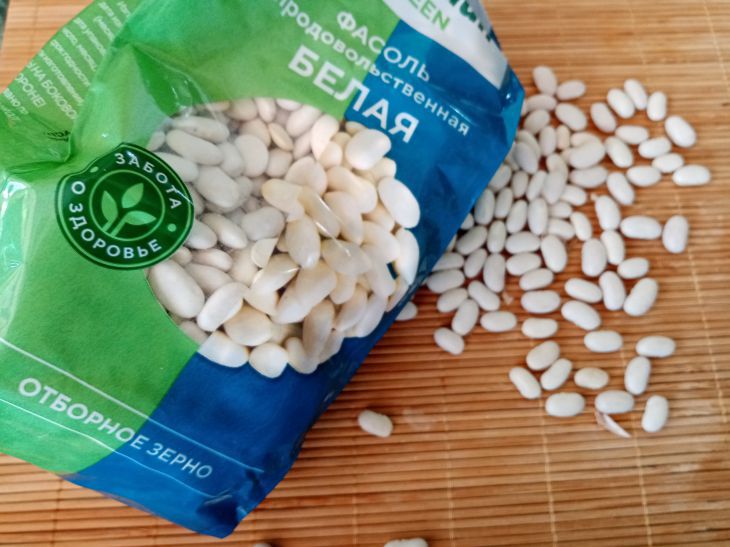Many people disdain beans. They say that they take a long time to cook, and the taste is “not refined,” and sometimes after eating them, a hurricane starts in the stomach. Well, the first, the second, and the third are nonsense!
Beans are a wonderful and, most importantly, healthy product. Only meat surpasses them in protein content, and all the useful substances (vitamins, minerals) they contain are completely preserved during heat treatment. No other vegetable can boast of this.
Beans do take a long time to cook, but the time you spend preparing them will be well worth it.
There are a huge number of different types of canned beans on sale, but this is not the same. It is much better to buy them raw and cook them. Even better - grow them yourself.
There are a lot of bean dishes, you can’t limit yourself to just bean soup (very tasty and healthy, by the way).

Vinaigrette without beans is not vinaigrette at all. But no matter what dish you are preparing, the beans must be pre-boiled.
This is the main method of heat treatment for her. In order for this process not to seem tedious to you, and the result to be desired, there are several "secrets". We will reveal them to you...
Before cooking beans, be sure to soak them. This is done not only to reduce cooking time, but also to remove oligosaccharides, which contribute to gas formation in the stomach and associated flatulence.
This is one of the main reasons why many people do not eat beans at all.
You need to keep the beans in water for a long time. Optimally, 8-10 hours. But no more. This time is enough to dissolve the oligosaccharides, but then the fermentation process may begin.
Beans must be cooked over low heat and with the lid open. This is especially important when cooking colored beans.
If you cover it with a lid while cooking, the color will change and acquire a dirty shade, and vigorous boiling will provoke it to "run away" (like milk). Constantly monitor the water level in the pan.
Beans absorb water very intensively. Add it periodically. If you add cold water to the pan after boiling and repeat this several more times five minutes after each boiling, the beans will cook faster.
Moreover, after the first boiling, it is advisable to drain the water completely and add cold water.
To keep the beans whole and not fall apart, stir them while cooking. Add salt only at the end of cooking or even to the finished dish. Since beans take much longer to cook than other products, it is better to cook them separately and then add them to the other ingredients.
If you cook it with the addition of acid, for example, tomato juice, it will take much longer to cook.
These are just the basic “secret secrets” of cooking beans, but they are quite enough to ensure that cooking dishes from them is not burdensome, and the dishes themselves appear more often on your menu.








